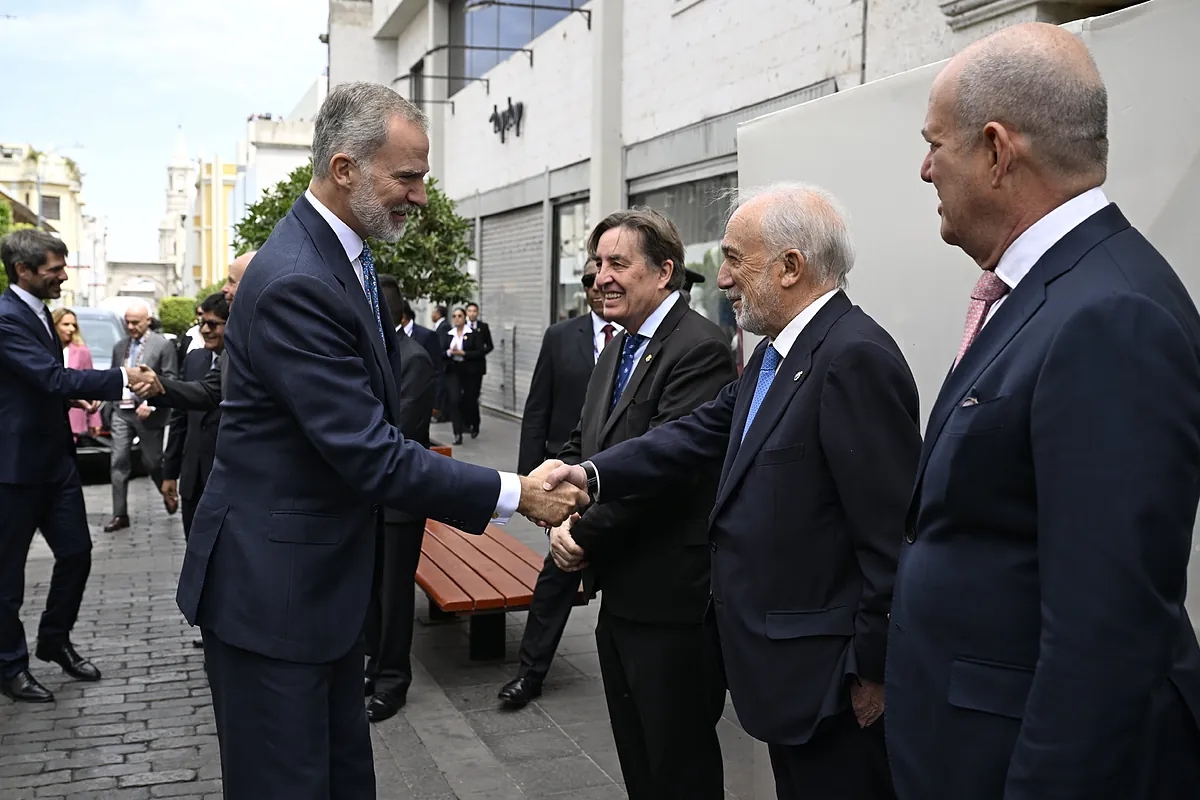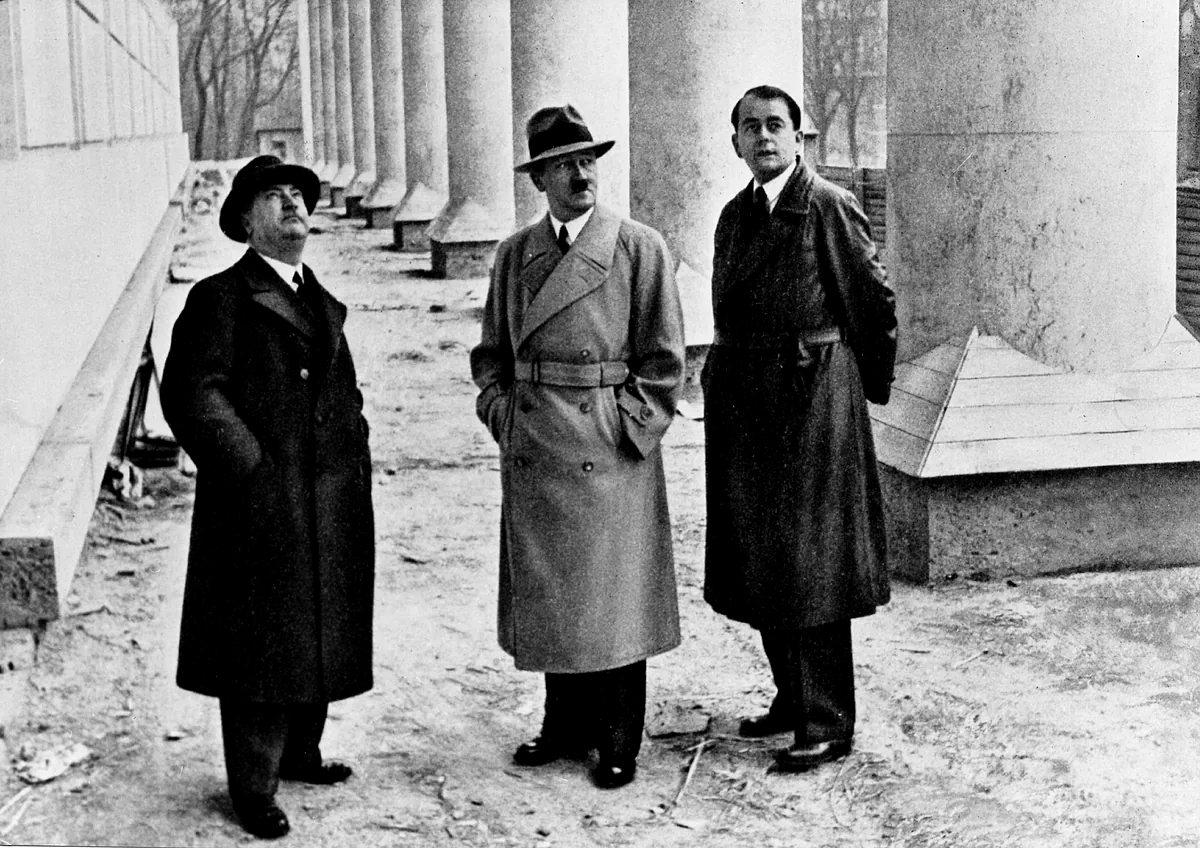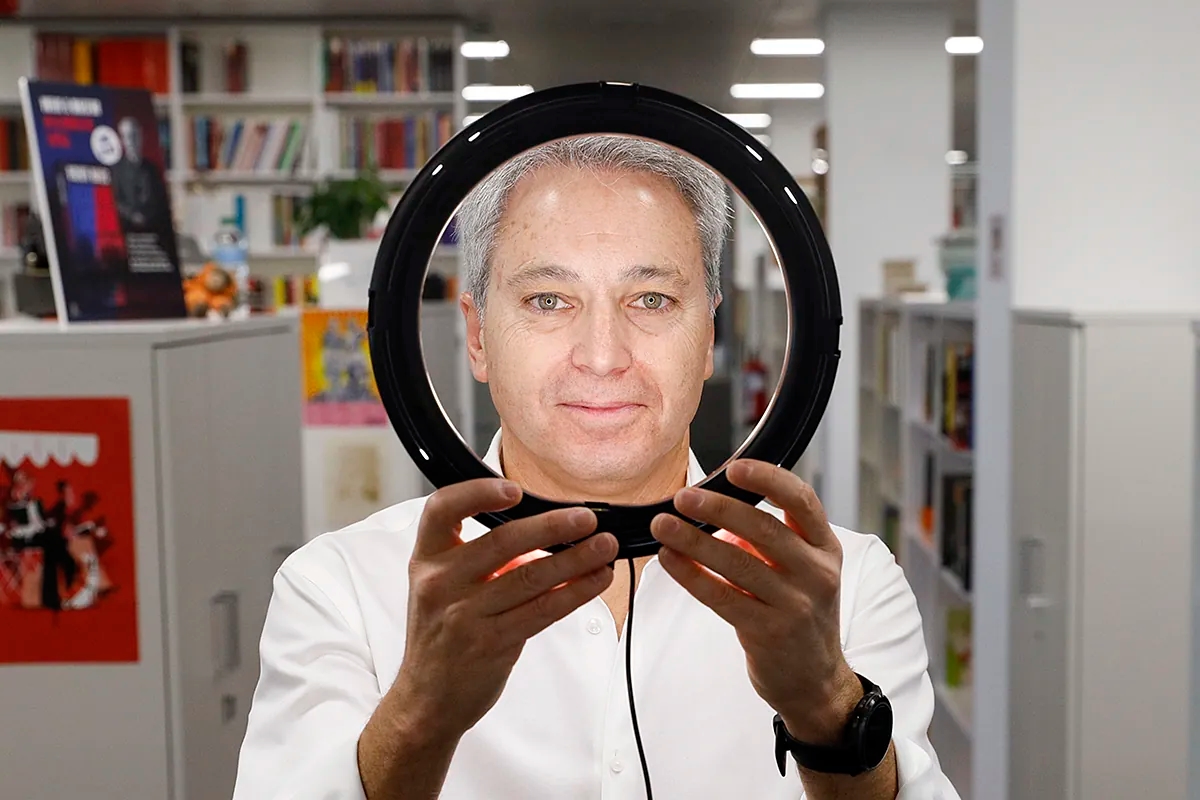Don Felipe, at the Arequipa Language Congress: "We live in a mixed-race world. No language was born to be a barrier."

The International Congress of the Spanish Language, the major gathering of Hispanic scholars held every three years, welcomed King Felipe VI to Arequipa, Peru, the birthplace of Mario Vargas Llosa . King Felipe opened the congress with a speech delivered in dialogue with the author of Conversation in the Cathedral . "Our language is for us, Spanish speakers, what Arequipa was for Vargas Llosa: the family home, a space with more than 600 million speakers, fertile in communication, science, literary creation, ideas, and projects," said the King. "The house we have built together today is nourished by brotherhood and culture for that better future we long for."
The King and Queen of Spain always provoke a friendly and amusing curiosity among Latin American citizens. Unfortunately, this Wednesday in Arequipa, the area around the Plaza de Armas was seized by the police and blocked off from residents, so there were no images of spontaneous joy like those experienced at the last language congress, when the King ended up crouching down playing a cajon. Around here, many Peruvians seem to have become disengaged from public affairs and, perhaps, from democracy. The economy is growing rapidly, although political stability is never achieved . In that context, the image of the King of Spain at a congress on the value of the language might be very attractive to many citizens. However, Don Felipe has been received in Peru by officials and second-level government representatives. The President of the Republic was removed from office last week, and her replacement is in Lima, having to form a government. Or perhaps her authority is still in doubt.
"This meeting is also, and even beyond language, an example of a community of values: a conversation about what unites, not what separates ," said King Felipe in his speech. "It is a valuable lesson in times when we constantly hear talk of competition, rivalry, disconnection, the resurgence of blocs... of interests rather than cooperation. From Arequipa, Peru, and in Spanish, we send a message of harmony to the world; in this 'good language,' which, in the words of Andrés Bello , 'is a providential means of communication and a bond of fraternity between the various nations of Spanish origin spread across the two continents.'"
Don Felipe was also a comforting image for the Spaniards present in Arequipa, after the protocol disaster of the Congress presentation. That day, Luis García Montero , director of the Cervantes Institute, repeatedly referred disdainfully to Santiago Muñoz Machado , director of the Royal Spanish Academy. Don Felipe said nothing about the conflict. He mentioned both institutions, congratulated them on their work, greeted the Association of Academies, and devoted a few paragraphs to the three thematic axes of the congress: clear language, mestizaje and interculturality, and language and Artificial Intelligence .

The most interesting words of the speech were dedicated to the theme of mestizaje: "No language was born to be a barrier or a wall; and if they have ever been barriers, obstacles, impediments, impositions... it is because they have been led down the wrong path, which distorts their primary function: to communicate," said Don Felipe. " Let us never be suspicious of the relational dimension of language , because it is what shapes it and makes it evolve. [...] How wonderful it would be if this broad projection of Spanish were to increasingly strengthen the voice of Spanish-speaking nations in international forums. At a time when diplomacy is so necessary, our language must serve to seek peace and achieve consensus."
There were more words at the Arequipa ceremony: the Ibero-American Secretary General, Andrés Allamand, praised Vargas Llosa. Academician Javier Cercas gave the most literary speech of the morning: humorous, self-parodic, evasive of clichés, and challenging . "Ministries of culture, forgive me, Mr. Urtasun , are secondary, if not ornamental," Cercas said to the Spanish Minister of Culture. Colombian Juan Gabriel Vásquez sounded more somber in his description of a world that "heals or dies" and depends on its most demanding speakers to avoid self-destruction.
And the hosts of the conference? Luis García Montero gave the classic Luis García Montero speech . He spoke in two voices alongside Carmen Noguero Galilea, the secretary general of the Cervantes University, recited words about the goodness of the common language and the knowledge it creates, and, at the end, said ethical things like, "The bridges between Europe and Latin America are today decisive in proposing an alternative to depravity." García Montero presented himself as "a professor who lives without the rush of hoaxes," used the word genocide (in the abstract), interspersed classic and modern quotes (from Lorca to Victoria Camps), and called for preventing languages from becoming "the language of likes ."
Santiago Muñoz Machado also gave his classic speech: a scholarly essay on the first writers who could be called mestizos in the Americas after the conquest: chroniclers of the Indies, mestizos, and priests who ensured the Inca culture would not disappear. There wasn't a single word about the bad times.
Don Felipe closed the event with words of reconciliation: " Let us continue to make our language an instrument of progress , of understanding, of shared prosperity. May we know how and desire to direct our efforts toward this end." A choir singing in Quechua closed the event.
elmundo





